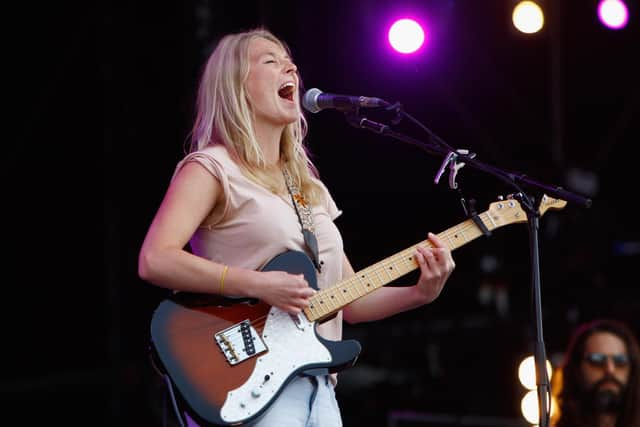Music review: Lissie, St Luke’s, Glasgow
Lissie, St Luke’s, Glasgow ***
Illinois-born singer-songwriter Elisabeth Maurus, better known as Lissie, has a voice which even by the high standards of American roots music can’t help but bowl you over. Had she not drifted a full two or three paces back from the microphone when blasting the high notes of dreamy opener Unravel, backed by a fully plugged-in five-piece band, then she might well have blown the PA speakers.
A hotly-tipped major label darling during the early stage of her career, when her 2010 debut album Catching A Tiger went gold and she guested on songs by Snow Patrol and Robbie Williams, the Stevie Nicks-loving star’s last decade or so has been a steady process of reinvention and rebuilding as an independent artist in an oftentimes cruel business.
Advertisement
Hide AdAdvertisement
Hide Ad

A pair of songs at the mid-way point of her set reflected in turn on anguish both personal and professional. Country ballad Sad – the most matter-of-factual manifestation of the “arc of grief”, as Lissie called it, that shaped her latest album Carving Canyons – did exactly what it said on the tin. Glossy minor-key rocker Hero meanwhile, gazed back in wistful anger on Lissie’s days living in Hollywood, trying to make it on a major. “I could have been a hero,” she sang, “I could have been a zero.”
She’s bright, bouncy and full of energy as a performer, and has clearly won a lot of hearts around the world, judging by the full house at this show. But Lissie’s cautiously middle-of-the-road songwriting and prosaic lyrics need to find a higher gear or two if she fancies another crack at the big time. One breezy-sad rootsy pop-rock song bled into another without much distinction. Only the very Stevie Nicks-y Night Moves, with its neatly circling guitar riff, gritty vocal and vague air of nocturnal seediness, hinted at a potentially exciting second act in this Americana life.